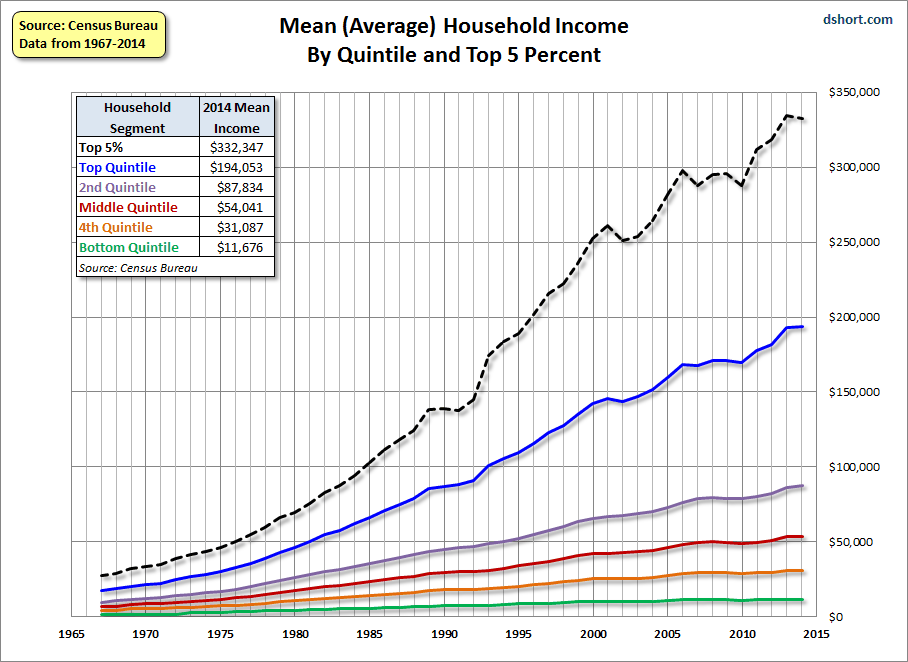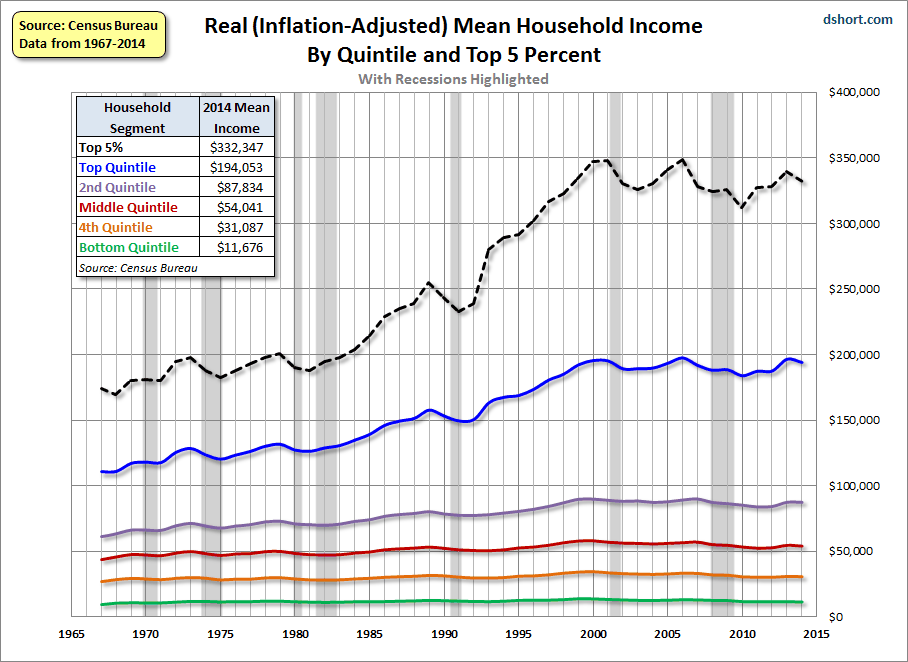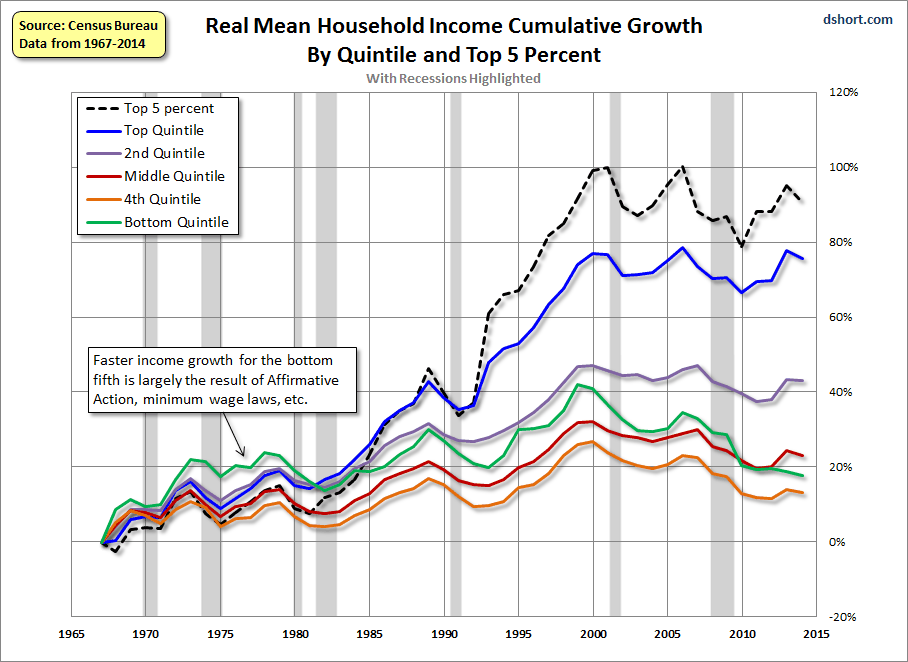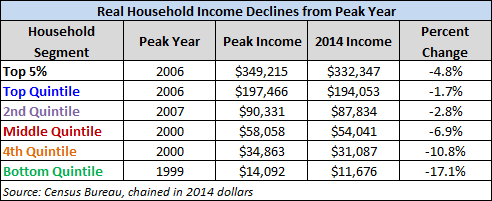Spare_change
Gold Member
- Jun 27, 2011
- 8,690
- 1,293
- 280
That is counter intuitive at best, total obfuscation at least. Given the facts of wage stagnation, loss of jobs, and rising costs how many people have enjoyed the fairy tale you proffer?Because, if you investigate the 'loss of the middle class', you will see that the greatest migration is from middle to upper class. On the flip side, the entitlement subculture that we have created has hindered migration from low to middle class.The direct and indisputable effect of losing manufacturing here in the United States is the loss of the middle class. How on earth can that be seen as a good thing?
Check the numbers ... ALL the numbers.
Quit whining and get the facts ... ALL the facts.








